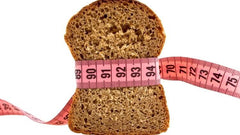
How to Lose Weight with a Coffee Diet by Increasing Your Metabolism
Coffee and weight loss have been linked for many years, and caffeine is now one of the most popular ingredients in modern fat-burning supplements. But does it really work?
If you’re thinking of trying a coffee diet to burn fat and shed pounds, then it’s worth doing your research first. You might have heard that it can boost your weight loss efforts but aren’t sure if it’s really true.
In this article, we examine the scientific evidence to help you decide whether it’s worth trying for yourself (plus some tips on how to get the most out of it).
Why Coffee Works as a Stimulant
Drinking Coffee and Weight Loss
How Many Calories Are in Coffee?
How To Drink Coffee On A Weight Loss Diet

Why Coffee Works as a Stimulant
Coffee is known for making people feel more awake and perking them back up when tired. This is because it contains several substances that act as stimulants in the brain and can affect metabolism too…
- Caffeine – this is the main one found in coffee.
- Theophylline – found in both coffee and cocoa.
- Theobromine – mainly found in cocoa but coffee also contains it in smaller amounts.
- Chlorogenic acid – a compound found in coffee that may slow down carb absorption.
Caffeine is the most well-known and thoroughly researched of all these substances. It blocks adenosine which is a neurotransmitter in the brain. This causes neuron firing to increase which then leads to dopamine and norepinephrine being released.
As a result, people feel more awake and full of energy. This is also the reason that it’s used as a sports supplement, as research shows that it can boost exercise performance by an impressive 11-12%.
Health Benefits of Coffee

Coffee has been consumed for thousands of years but we’re still learning about its effect on the human body. In the past, it was linked to negative issues such as high blood pressure and even cancer.
But more recent research has established that these concerns were unfounded and it may even have some beneficial health effects. According to Harvard University, these include reducing the risk of…
- Cardiovascular disease – including heart failure, heart attack, and stroke
- Type 2 diabetes
- Uterine cancer
- Liver cancer
- Parkinson’s disease
- Gout
- Cirrhosis
So, does this mean we should all be following a coffee diet?
Not necessarily. The research has established beneficial links but not necessarily proven that it prevents these conditions. But for now, we can rest assured that coffee consumption isn’t doing us any damage.
Drinking Coffee and Weight Loss
According to scientific studies, coffee and weight loss do appear to be interlinked. There’s evidence to suggest that it causes fat to be released from cells and boosts the metabolism too.
Some studies have also shown that it can act as an appetite suppressant, although others found conflicting results. The bad news is that people tend to build up a tolerance to caffeine over time which means it has less of an effect the longer you use it.
There are practical ways to avoid this, such as taking it on alternate days or cycling its usage on different weeks of the month. But it’s something to be mindful of if you’re thinking of using it as a weight-loss supplement.

How Coffee Affects Fat Cells
The caffeine in coffee has a direct effect on fat cells but will only contribute to weight loss if you’ve created a negative energy balance through diet and exercise.
Because it increases levels of epinephrine (aka adrenaline) in the blood, the body interprets this as a sign to break down fat.
The fat cells release their stored fatty acids into the bloodstream so that they can be expelled by the body. However, this last part will only happen if you’re consuming fewer calories than you burn.
If not, the fatty acids will float around in your system and then be reabsorbed by the cells once epinephrine levels return to normal. So, as with most approaches to weight loss, drinking coffee will only help if you’re doing everything else right too.
Coffee and Metabolism
Coffee and weight loss are also linked by its effects on metabolism. Research shows that caffeine can increase a person’s resting metabolic rate by 3-11%. This means that they’ll burn more calories at rest than they would do otherwise, even if they aren’t doing any physical activity.
Unfortunately, these weight loss benefits aren’t enjoyed universally – some people will gain more of an advantage than others.
Studies have shown that those who are categorized as obese tend to experience less of a metabolism boost – sometimes as little as a third of that seen by lean people. It also appears to be more effective for younger people than older ones.
How Many Calories Are in Coffee?

The number of calories in coffee will depend on how you take it. Coffee on its own hardly contains any calories at all but adding milk and sugar will obviously increase this. According to nutrition data, here’s how many calories are in your typical coffee…
- Mug of instant black coffee – 5 calories
- Mug of instant Mocha – 60 calories
- Cappuccino with dairy milk – 120 calories
- Cappuccino with soymilk – 64 calories
- Latte with dairy milk – 204 calories
- Latte with soymilk – 162 calories
- Caramel Brulee Latte – 460 calories
As you can see from this list, the more milk or sweeteners you add to your coffee, the more calories it will contain. But if you just stick to a plain black coffee, then you’ll only be consuming only 5 calories!
How To Drink Coffee On A Weight Loss Diet
So, is coffee a weight loss drink that’ll help shift a few extra pounds? Well, like most approaches to fat loss, it’s all about consuming it as part of a balanced lifestyle.
Drinking coffee alone isn’t going to help you lose weight, no matter what proponents of ‘the coffee diet’ tell you. Unless you’re creating a negative energy balance through a healthy diet and regular exercise, then it won’t be able to make fat disappear.
But it can support your weight loss efforts when combined with lifestyle changes. The key is to consume it in the right way.
Firstly, try not to add anything to your drinks. There is evidence that black coffee and weight loss are linked, but milky, sugary, or syrupy beverages definitely aren’t going to help.
In fact, people often don’t realize just how many calories their Starbucks contains which can lead to accidental overconsumption. So stick to instant black coffee, espresso, or Americano.
Secondly, don’t drink too much of it. Overconsumption can make it difficult to sleep which can then sabotage your weight loss efforts. Lack of good-quality shut-eye can increase stress hormones which makes the body more inclined to store fat instead of losing it.
Limit yourself to a maximum of 3 cups a day and don’t drink any after 1 pm in the afternoon.
Coffee and Weight Loss – Summary
So, what’s the coffee and weight loss truth?
Current evidence suggests that the caffeine in coffee can cause fatty acids to be released from fat cells, but these will only be expelled from the body if there’s a negative energy balance.
Caffeine can boost metabolism so that more calories are burned at rest, but these effects will diminish as your body builds up a tolerance.
Following a pure coffee diet isn’t recommended but drinking it alongside healthy meals and regular exercise can boost weight loss results. Because of the calories contained in milk and sugar, it’s best to drink black coffee for maximal benefit.
Check also:




